TORONTO — Hayley Wickenheiser hasn’t had a lot of time to reflect.
The Canadian women’s hockey star — a quadruple Olympic gold medallist and seven-time world champion — retired in January 2017 and quickly transitioned to medical school.
As if there wasn’t enough on here plate already, she then took on the role as assistant director of player development for the Toronto Maple Leafs in August 2018.
Wickenheiser finally got a chance to look back at her standout playing career, and its impact, on Monday night.
2019 Hall of Fame Class
The 41-year-old was among six inductees enshrined in the Hockey Hall of Fame, joining three-time Stanley Cup winner Guy Carbonneau, offensive blue-line dynamo Sergei Zubov and Czech great Vaclav Nedomansky in the players category.
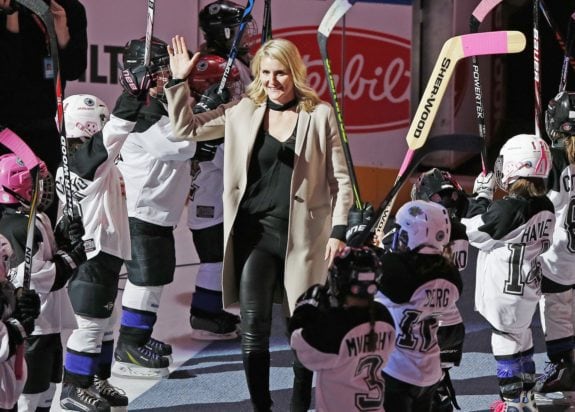
Pittsburgh Penguins general manager Jim Rutherford and legendary Boston College head coach Jerry York went into the hall as builders.
Hayley Wickenheiser
“It was not a common thing as a little girl to want to play hockey in the small town where I came from,” Wickeheiser, a native of Shaunavon, Sask., said during her speech. “But my mom and dad believed that a girl could do anything that a boy could do.
“My dad coached … and my mom fought. She fought not only for the right for me to play the game, but for hundreds of other girls.”
After suiting up on boys teams growing up in Calgary — there weren’t any for girls, and she’d tuck her hair under her helmet to avoid standing out — she went on to a stellar 23-year career with Canada, blazing a trail at a time when the sport desperately was looking for traction.
Wickenheiser, who has medical school exams Wednesday, scored 168 goals and 379 points in 276 games to help secure four straight Olympic golds (2002, 2006, 2010 and 2014) as well as those seven world titles.
Named the MVP of both the 2002 and 2006 Olympic tournaments, Wickenheiser is the seventh woman to be inducted into the hall. The former centre was also enshrined in the International Ice Hockey Federation’s Hall of Fame in the spring.
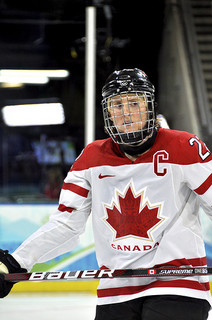
“We all knew this was going to happen,” Jayna Hefford, a 2018 hall inductee and Wickenheiser’s Canadian teammate, said before the induction ceremony. “Her work ethic and her intensity were what stood out.
“Everyone has different leadership qualities — those were Hayley’s.”
Guy Carbonneau
Carbonneau, 59, won the Stanley Cup in 1986 and 1993 with the Montreal Canadiens, and again in 1999 with the Dallas Stars.
The native of Sept Iles, Que., was an attacking force in junior, but transitioned to the other side of the puck in the NHL, becoming one of the game’s premiere shutdown centres on the way to winning the Selke Trophy as the league’s top defensive forward in 1988, 1989 and 1992.
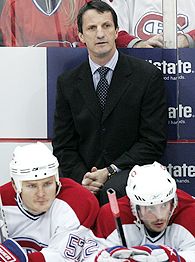
Carbonneau, who retired in 2000 and waited 16 years before getting inducted in the hall, finished with 260 goals and 663 points in 1,318 regular-season games. He added 93 points (38 goals, 55 assists) in 260 playoff contests.
“As a kid, I was dreaming about playing in the NHL, dreaming of winning the Stanley Cup, dreaming of scoring a goal in the playoffs,” Carbonneau said. “But being inducted in the Hall of Fame? Never in my wildest dreams.”
Sergei Zubov
A smooth-skating defenceman with terrific vision, Zubov played 12 of his 16 NHL seasons with Dallas, registering 152 goals and 771 points in 1,068 regular-season games. The 49-year-old Moscow product added 24 goals and 117 points in 164 playoff contests, helping the New York Rangers win the Stanley Cup in 1994, and Dallas — along with Carbonneau — do the same in 1999.
Zubov, who also won Olympic gold in 1992 with the Unified Team after the collapse of the Soviet Union, said he didn’t want to go to Dallas when he was dealt to Texas in 1996.
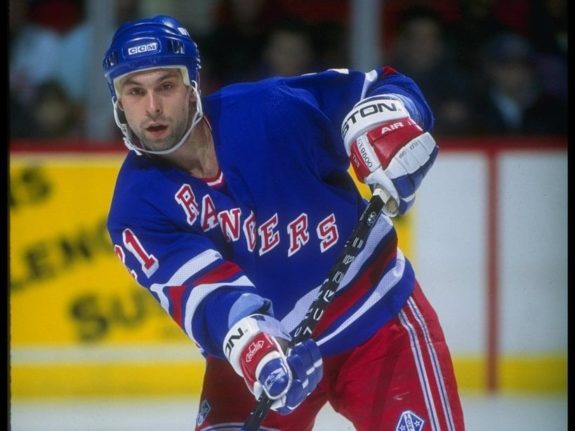
“Get me traded,” he recounted telling his agent. “But (Stars GM) Bob Gainey did his homework and sent the most beautiful bouquet of flowers to my wife.
“She said, ‘Maybe we should give it a try.’”
Jim Rutherford
A goalie with four NHL teams from 1970 to 1983, Rutherford was named GM of the Hartford Whalers in 1994. He stuck with the franchise when it moved to Carolina to become the Hurricanes, and built the roster that won the organization’s only Cup in 2006.
The 70-year-old from Beeton, Ont., took on the same role with the Penguins in 2014 and helped guide Pittsburgh to back-to-back titles in 2016 and 2017, making him the only GM to win Cups with two different teams since the NHL expanded in 1967.
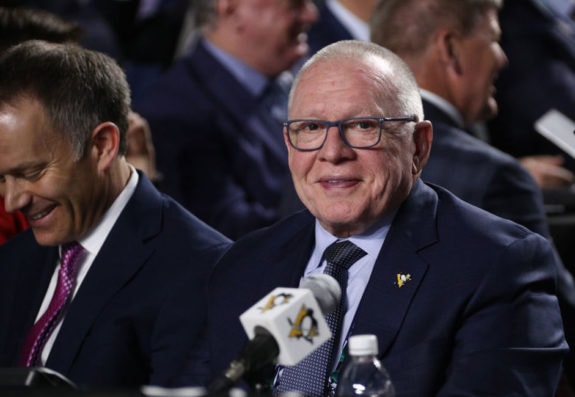
“Don’t let anyone tell you (that) you can’t do something, because that was the story of my career,” Rutherford said. “And the more they told me I couldn’t do things, the more it turned out that I did.”
Vaclav Nedomansky
Nedomansky, 75, starred for 12 years in his native Czechoslovakia before becoming the first athlete from an Eastern European communist country to defect to North America to pursue a professional hockey career in 1974.
He played parts of three seasons in the World Hockey Association before jumping to the NHL with the Detroit Red Wings as a 33-year-old rookie. Nedomansky registered 122 goals and 278 points in 421 games with Detroit, the St. Louis Blues and the Rangers.
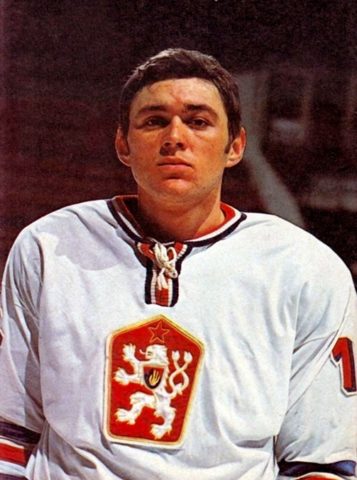
“It was difficult, complicated, stressful,” Nedomansky said of his decision to defect. “But it happened, and I’m so happy that I’m here.”
Jerry York
The 74-year-old York, who is in his 48th season behind the bench, owns five NCAA titles, including four with the Eagles, and has the most wins in U.S. college history.
“I just love coaching,” said the native of Watertown, Mass. “I love the people we coach. We’re not coaching pucks or against this person.
“We’re coaching people.”
This report by The Canadian Press was first published Nov. 18, 2019.
___
Follow @JClipperton_CP on Twitter
Joshua Clipperton, The Canadian Press